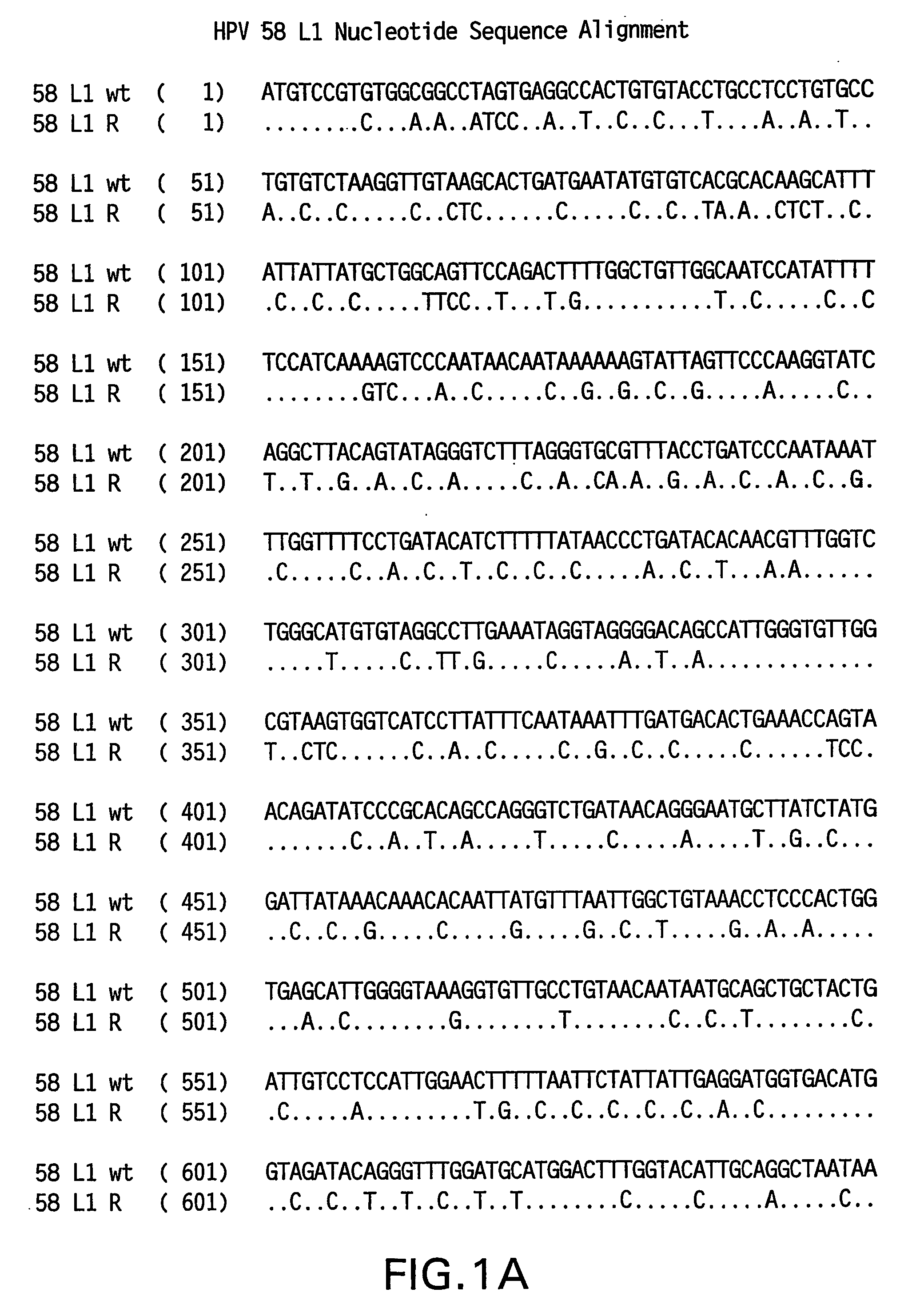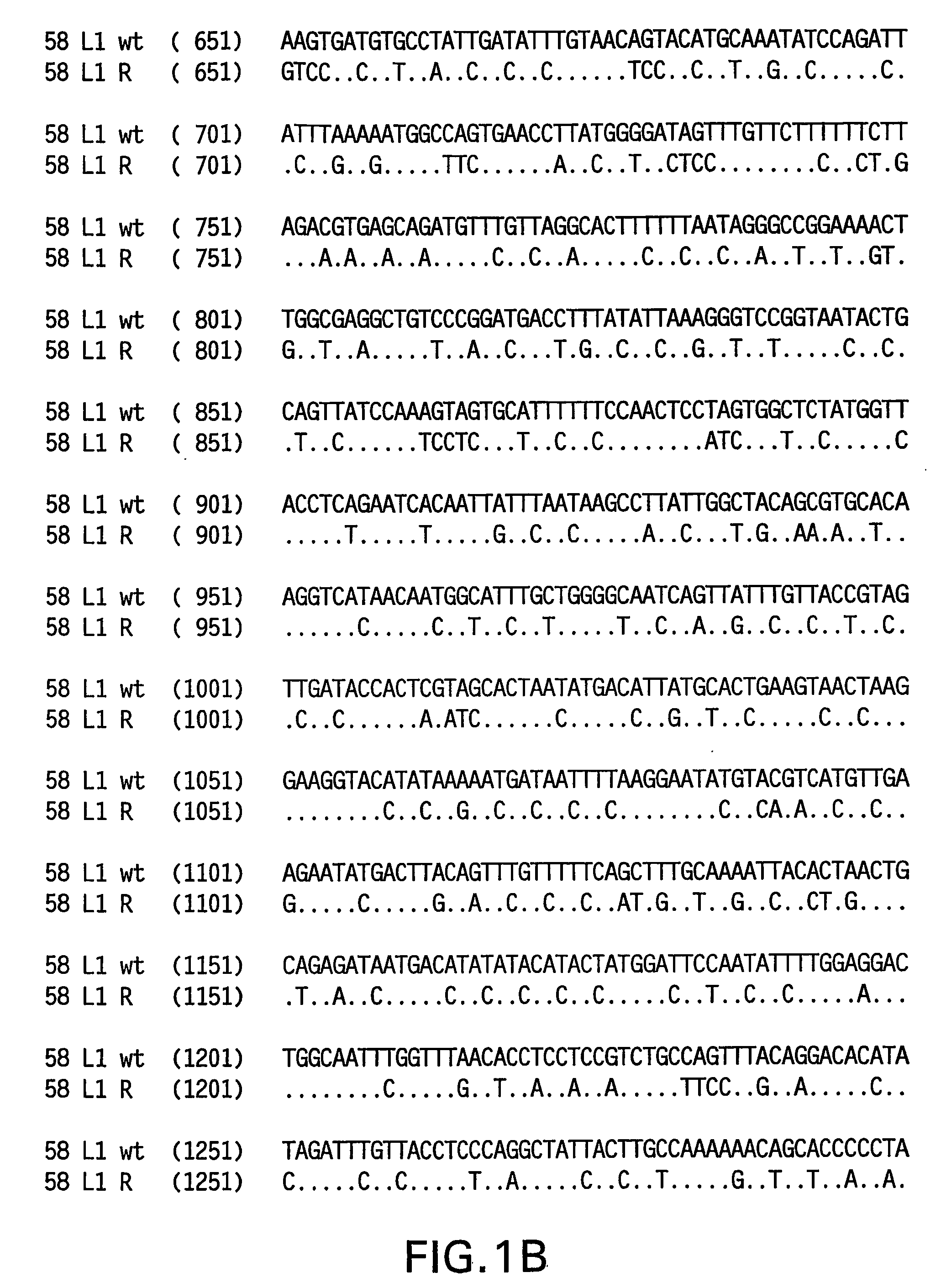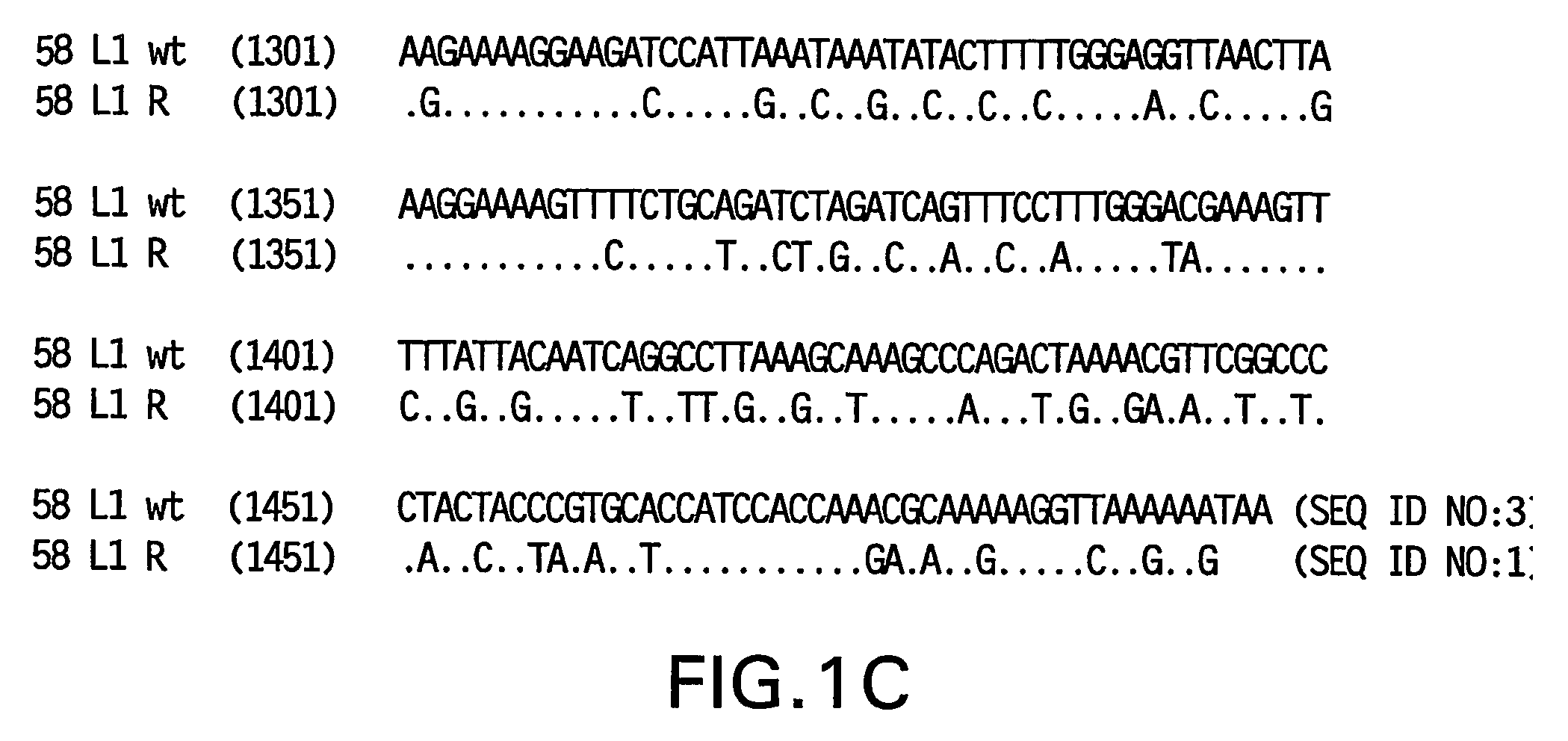Optimized expression of hpv 58 l1 in yeast
a technology of hpv and hpv 58, which is applied in the field of optimizing the expression of hpv 58 l1 in yeast, can solve the problems of limiting the production of purified proteins, development and commercialization, etc., and achieves the effects of enhancing immunity, preventing and/or treating, and high level expression
- Summary
- Abstract
- Description
- Claims
- Application Information
AI Technical Summary
Benefits of technology
Problems solved by technology
Method used
Image
Examples
example 1
Determination of a Representative HPV 58 L1 Sequence
[0078] The HPV 58 L1 sequence has been described previously (Genbank Accession # NC—001443). It is not uncommon, however, to find minor sequence variations between DNAs obtained from clinical isolates. To determine a representative HPV58 L1 wild-type sequence, DNA was isolated from three clinical samples previously shown to contain HPV 58 DNA. HPV 58 L1 sequences were amplified in a polymerase chain reaction (PCR) using Taq DNA polymerase and the following primers: HPV 58 L1 F 5′-A T G T C C G T G T G G C G G C C T A G T-3′ (SEQ ID NO:4) and58 3′11 BglII 5′-G A G A T C T G T G T A A G T A C C A C A A C A A T T A-3′ (SEQ ID NO:5). The amplified products were electrophoresed on agarose gels and visualized by ethidium bromide staining. The ˜1500 bp L1 bands were excised and DNA purified using Geneclean Spin Kit (Q-Bio Gene, Carlsbad, Calif.). The DNA was then ligated to the TA cloning vector, pCR2.1 (Invitrogen). TOP10F′E. Coli were ...
example 2
[0081] Yeast-preferred codons have been described (Sharp, Paul M and Cowe, Elizabeth. Synonymous Codon Usage in Saccharomyces cerevisiae YEAST 7: 657-678 (1991)). Expression of the HPV 58 L1 wt protein was detectable, however to obtain increased expression, the HPV 58 L1 gene was rebuilt utilizing the preferred yeast codons. The rebuilt 58 L1 sequence, which comprises yeast-optimized codon sequences, contained 404 nucleotide alterations compared to the 58 L1 wt sequence. The resulting sequence is referred to herein as “58 L1 R” (R=rebuild, see FIG. 1). The translated amino acid sequence of 58 L1 R was not altered. The nucleotide (SEQ ID NO: 1) and amino acid (SEQ ID NO:2) sequences of HPV 58 L1 R are shown in FIG. 2. Said rebuilt sequence provides increased HPV 58 L1 expression, which is a significant advance over the wild-type for use in vaccine development (see EXAMPLE 4).
[0082] The strategy employed to produce the optimized gene was to design long overla...
example 3
RNA Preparation
[0087] Cell pellets of transformed yeast cells induced to express HPV 58 L1 or HPV 58 L1 R by galactose induction were thawed on ice, suspended in 0.8 ml of Trizol reagent (Life Technologies, Gibco BRL) and incubated at room temperature for 5 minutes. One fifth volume of chloroform was added to the vial. It was then shaken vigorously for 15 seconds to mix and incubated at room temperature for 3 minutes. After a 5 minute centrifugation at 13 k rpms, the upper phase was collected and transferred to a new vial. 0.4 ml isopropanol was added and incubated at room temperature for 10 minutes. To pellet the RNA, centrifugation was performed at 13 k rpms for 10 minutes. The supernatant was decanted, the RNA pellet washed with 75% EtOH and centrifugation repeated. The supernatant was decanted and the RNA pellet allowed to air dry for 15 minutes followed by suspension in RNase-free water. Spectrophotometry was performed to determined the concentration of RNA in the sample using...
PUM
| Property | Measurement | Unit |
|---|---|---|
| Volume | aaaaa | aaaaa |
| Immunogenicity | aaaaa | aaaaa |
Abstract
Description
Claims
Application Information
 Login to View More
Login to View More - R&D
- Intellectual Property
- Life Sciences
- Materials
- Tech Scout
- Unparalleled Data Quality
- Higher Quality Content
- 60% Fewer Hallucinations
Browse by: Latest US Patents, China's latest patents, Technical Efficacy Thesaurus, Application Domain, Technology Topic, Popular Technical Reports.
© 2025 PatSnap. All rights reserved.Legal|Privacy policy|Modern Slavery Act Transparency Statement|Sitemap|About US| Contact US: help@patsnap.com



